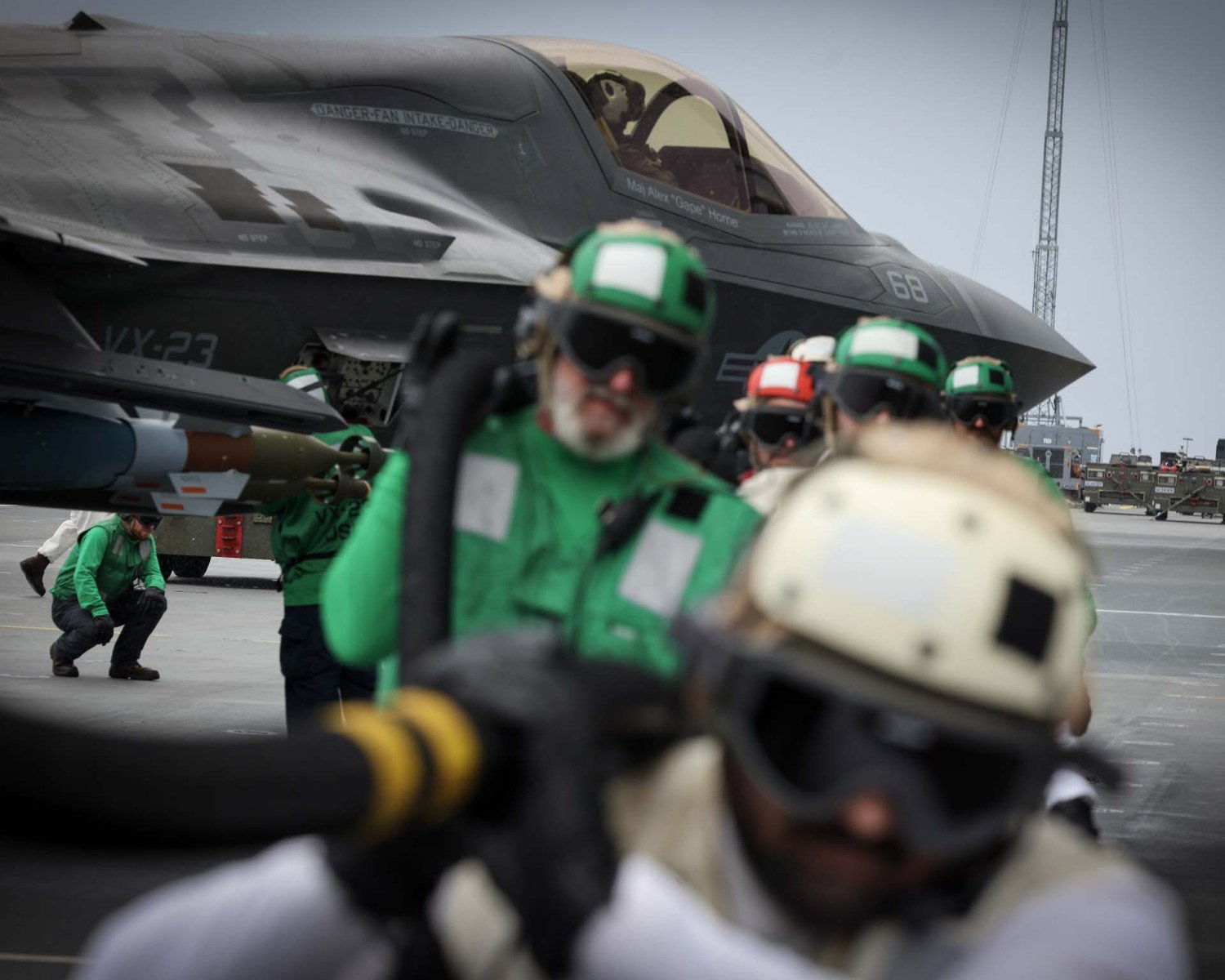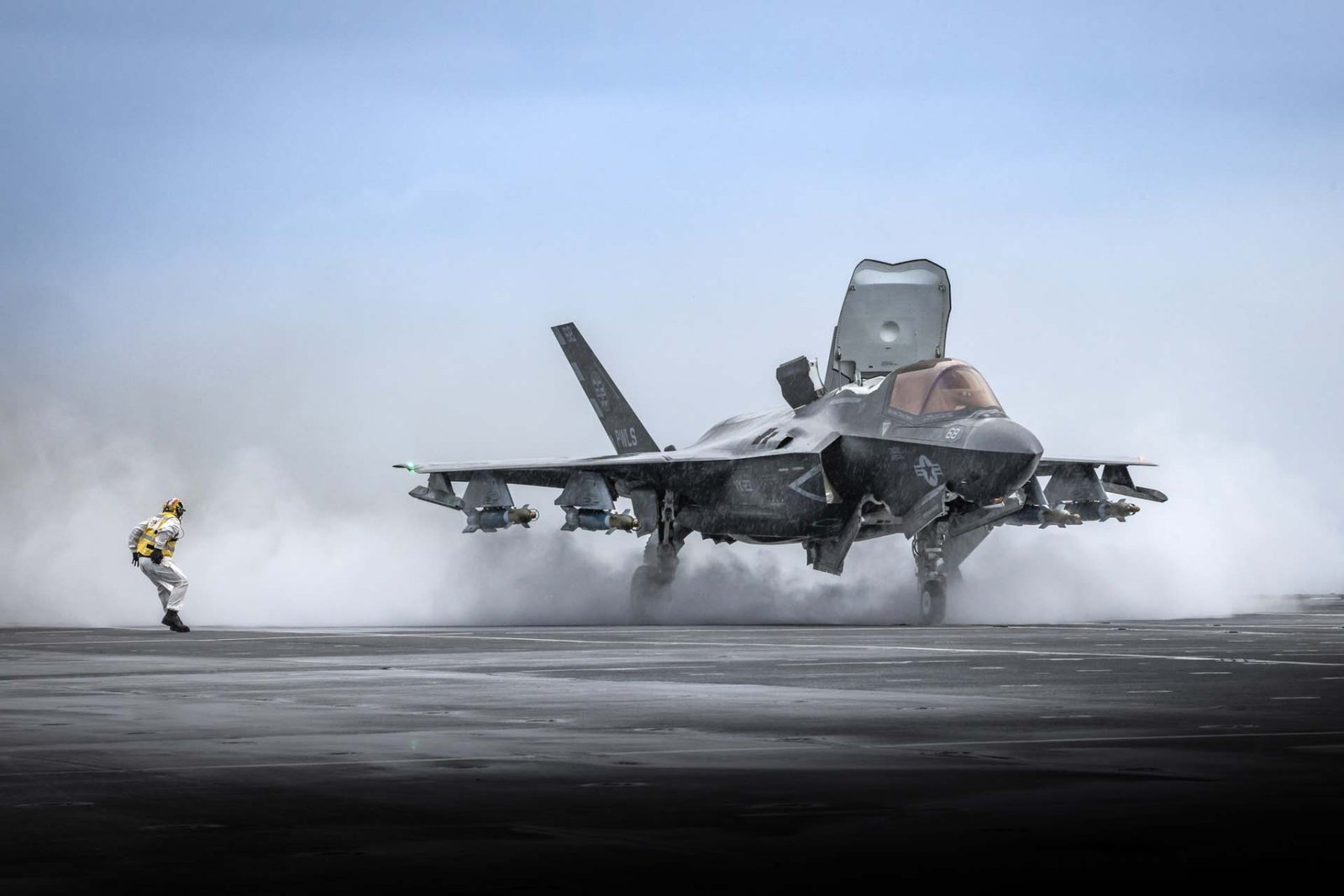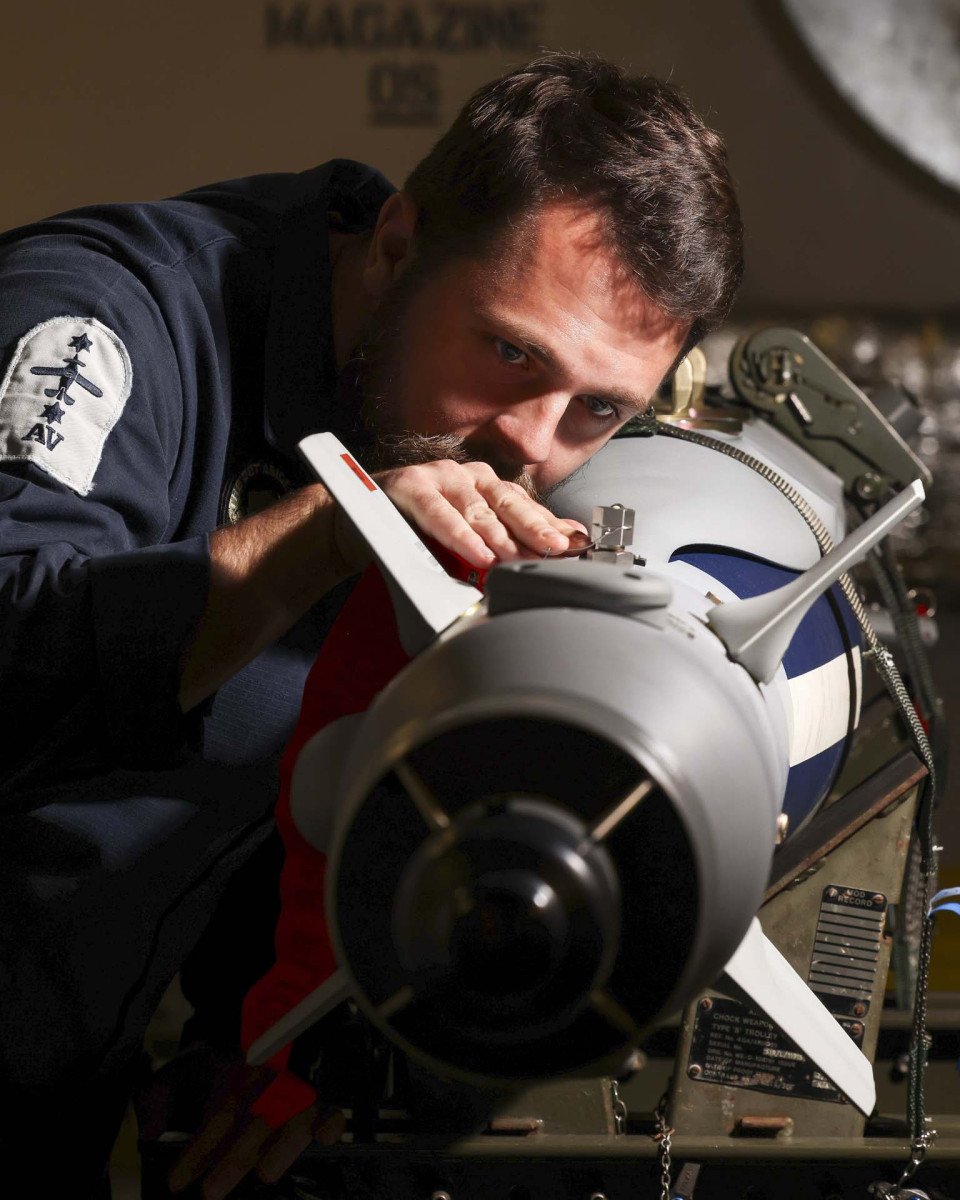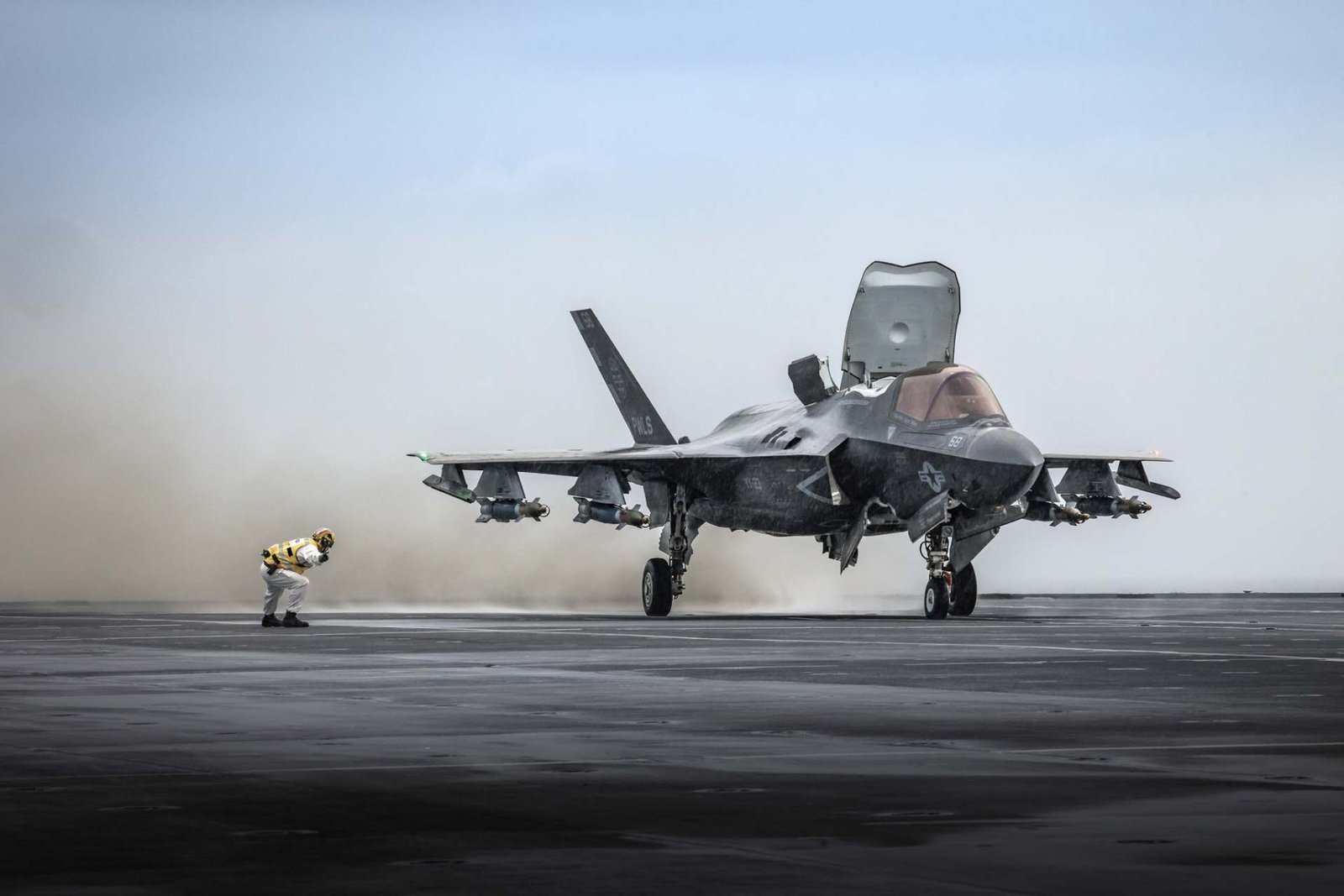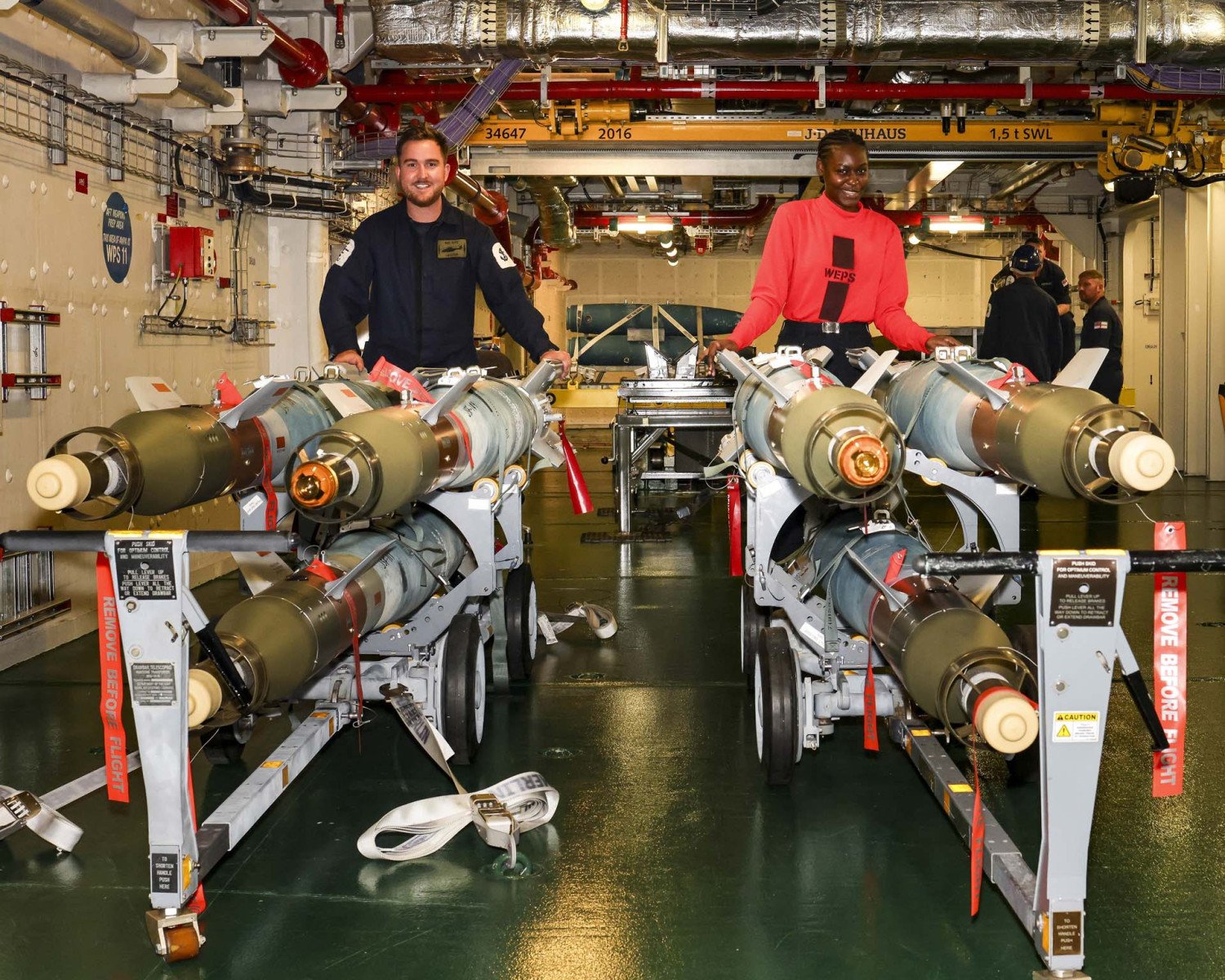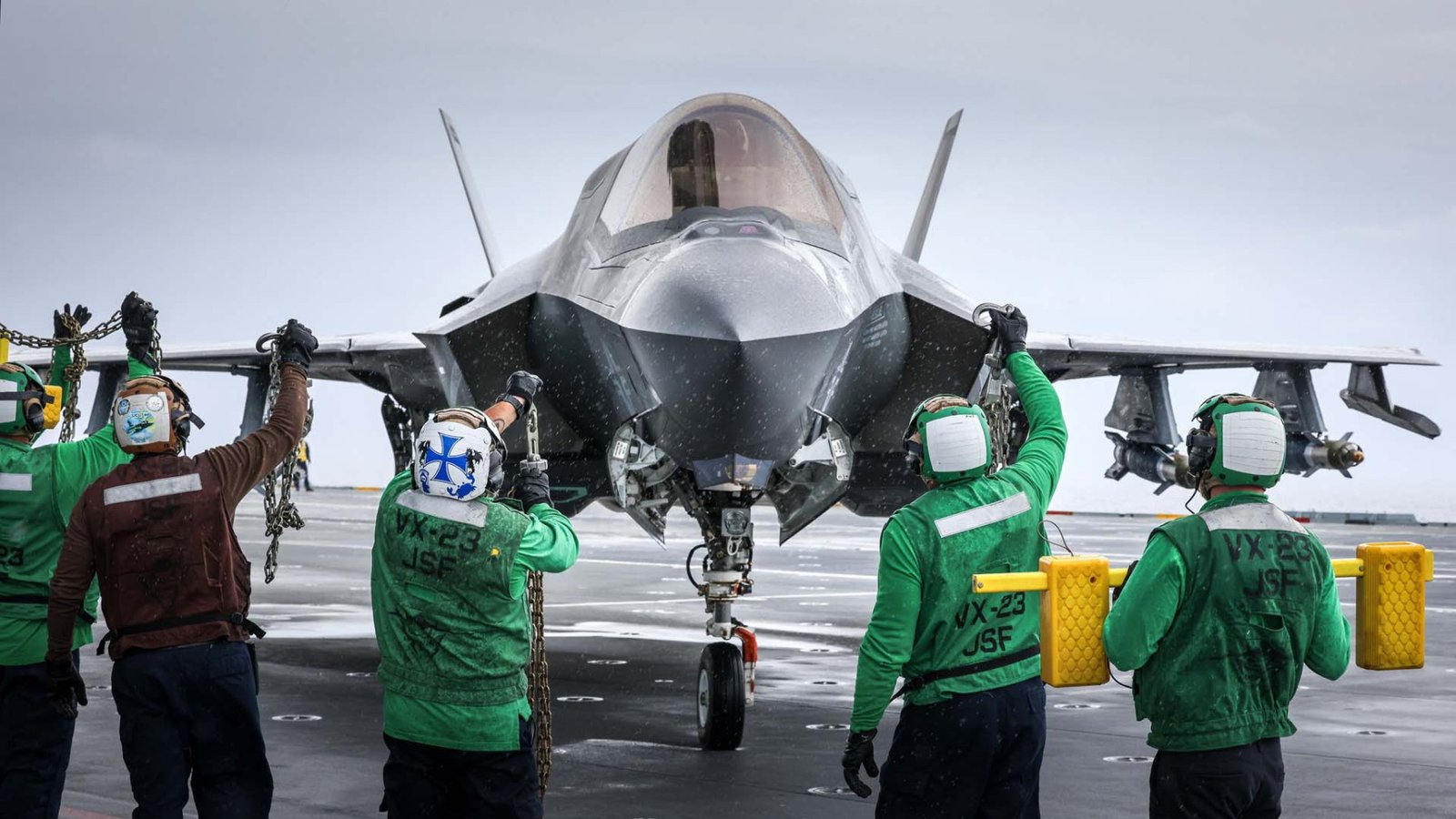Marshalled on the deck of HMS Prince of Wales off the US East Coast, this is an F-35B fully loaded. To the max. Topped out. Maximum effort.
It’s known in naval aviation parlance as ‘beast mode’: every pylon occupied by a weapon, the internal bomb bay bristling.
Fully loaded, the F-35B can deliver 22,000lb of destructive and defensive power: air-to-air and air-to-ground missiles and conventional and laser-guided bombs.
If you’re struggling to imagine a 22,000lb payload… it’s the equivalent of the heaviest bomb carried by a WW2 Lancaster bomber (the Grand Slam or ‘earthquake’ bomb).
And it’s nearly three times more than the UK’s last carrier-borne strike aircraft, the Harrier GR9, over a decade ago.
In this instance, the specially-modified F-35B from the US Navy’s Integrated Test Force was loaded with a combination of inert 500lb Paveway IV laser-guided bombs and inert 1,000lb Paveways in the weapons bay.
To date, F-35s have been taking off from the 350ft marker on the deck (roughly in line with the end of the forward island).
Depending on a whole host of factors (including weather, wind over the deck, humidity) a fully-loaded Lightning might need a full run-up to the ski jump to get airborne… which means starting all the way back at the 850ft marker… not too far from the rear end of the flight deck.
It’s the first time a full run-up has been tested on either carrier. And it’s also the first time bombs (albeit inert, practice models) have been dropped by aircraft launched from HMS Prince of Wales.
Captain of the Flight Deck Warrant Officer 1 John Etherington – who has experience of deck operations on Nimitz-class US carriers – was the sailor giving the ‘go’ to the pilots.
“It was impressive, launching the jet, all bombed up from the back of the flight deck,” he said. “It’s exciting to see us pushing the boundaries of UK naval aviation.”
At the controls of F-35s in beast mode were US Marine Corps pilots Major Paul Gucwa and Lieutenant Colonel Mike Lippert.
This is the fourth time the latter has worked with the UK’s carrier force – three times helping HMS Queen Elizabeth develop her Lightning capability, now with Prince of Wales.
“It’s a pleasure to see the continued progress in operating capability – there has been undeniable growth and progress,” he said.
“Major Gucwa and I took great pleasure in continuing to expand the warfighting capacity of Britain’s biggest warship. We were a small part of an immense, cross-functional, integrated team which spanned every corner of the ship, the F-35 ITF mission control rooms, and our worldwide F-35 Lightning II partnership – all focused on increasing the interoperability and lethality of our front-line fighter.”
Next up on the ship’s F-35 trials off the USA: rolling (rather than standard vertical) landings first without weapons still carried, then with.



